Iran warns of new surprises and no restraint if attacked again
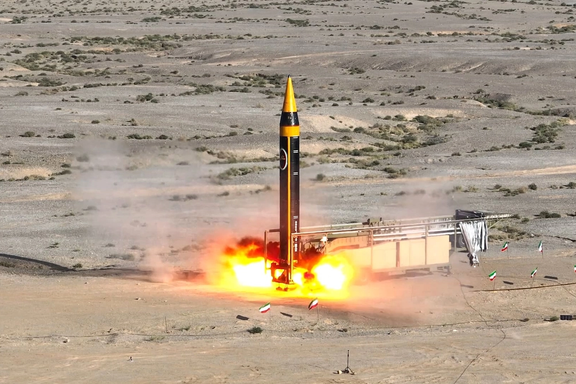
Tehran will deliver a far stronger response to any future attacks by the United States or Israel, the Islamic Republic's Armed Forces said in a statement on Saturday.

Tehran will deliver a far stronger response to any future attacks by the United States or Israel, the Islamic Republic's Armed Forces said in a statement on Saturday.
“Once again, we firmly warn the criminal America, the malicious and brutal Zionist regime to abandon conspiracies and hostility against a powerful and invincible Iran,” said the General Staff of the Armed Forces in the statement marking the anniversary of the release of Iranian war prisoners from Iraq.
"In the event of any miscalculation or satanic action, what prevented us from wider operations during the 12-day imposed war will no longer apply," the military warned.
"This time they will face new surprises and far more crushing blows."
Israel’s military chief said on Thursday the army is prepared to launch more strikes on Iran if necessary, after what he described as a successful preemptive war in June that halted an emerging existential threat to Israel.
“We struck Iran and its axis, whose declared aim was our destruction,” chief of staff Lt. Gen. Eyal Zamir said at a military college change of command ceremony.
On June 13, Israel launched land and air strikes targeting senior Iranian military leaders, nuclear scientists, and politicians, while damaging or destroying Iranian air defenses and nuclear facilities.
Iran retaliated with missile and drone attacks on Israeli cities and military sites. On the ninth day of fighting, the United States bombed three Iranian nuclear sites. Iran then struck a US base in Qatar before a US-brokered ceasefire ended the conflict.
Zamir said the campaign in June sent a clear message that Israel "would not allow its enemies to become stronger with capabilities that will endanger its existence and will be willing to pay a heavy price to ensure its existence and future."
"If necessary, we will know how to act again with precision, intensity and lethality."
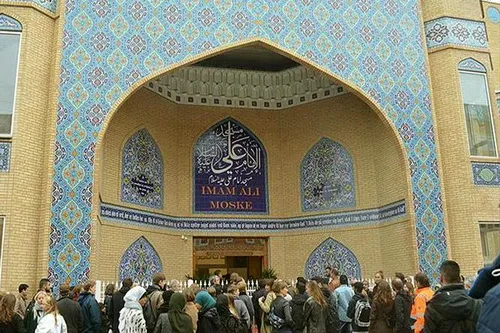
A Danish newspaper has revealed extensive financial and organizational ties between the Islamic Republic and Imam Ali Mosque in Copenhagen, one of the largest Shiite centers in Denmark.
“The Imam Ali Mosque in Copenhagen has received millions of kroner from Iranian donors for the purchase of a detached house. This is shown by secret documents that Berlingske has been given. The money has gone through the Iranian Embassy in Copenhagen,” wrote the paper.
The mosque received millions of kroner from Iranian institutions and donors to advance the Islamic Republic’s ideological agenda, according to documents obtained by Berlingske.
In 2007, about 2.7 million kroner was transferred through Iran’s embassy in Copenhagen to the mosque’s managing association. The funds, provided by two Iranian charities, were used to buy a villa in Denmark.
Although the Danish Justice Ministry licensed the property strictly for embassy staff housing, it became the residence of Mohammad Mahdi Khademi, the mosque’s imam and chairman.
Khademi, from an influential Iranian family, was formally employed by the Iranian embassy between 2001 and 2015 and listed internally as embassy staff, Berlingske reported.
The mosque’s bylaws, previously reported in Danish media, state it is “under the authority of the Supreme Leader of the Islamic Republic.”
The revelations have sparked calls in parliament for closure of the mosque. Some lawmakers described it as a propaganda arm of the Islamic Republic and urged its immediate shutdown. Others argued that if current laws prevent closure, legislation must be amended to stop foreign-backed institutions from operating.
The financial dealings and property case linked to the mosque are now under review by Danish security and judicial authorities.
Germany banned the Islamic Center of Hamburg in July 2024, citing its promotion of the Islamic Republic’s ideology, support for Hezbollah, and actions contradicting the German constitution.
A nationwide police raid in November 2023 across 54 associated offices in seven states precipitated the center’s removal from the umbrella Central Council of Muslims in Germany, laying the groundwork for a formal ban on its operations and affiliates.
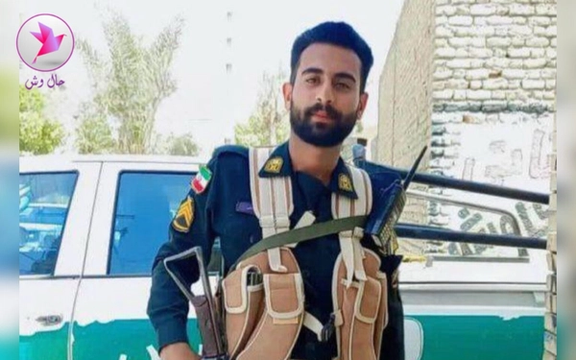
An Iranian police officer was killed and another wounded on Friday night when gunmen from a Sunni militant group opened fire on a military vehicle in the southeastern city of Iranshahr, local police said.
The police have identified the victims as Sgt. Ramin Sadeghi.
The gunmen exchanged fire with police before fleeing, according to the IRGC-affiliated Fars News.
The shooting occurred when a passing car opened fire on security forces moving through the city, according to a report by Haalvsh, a human rights organization that focuses on the restive Sistan-Baluchestan province.
A heavy security presence followed, with dozens of military and plainclothes forces dispatched to the scene, according to witnesses. Checkpoints were set up at the entrances and exits of Iranshahr, where drivers were stopped and asked for identification.
The Sunni militant group Jaish ul-Adl claimed responsibility for the attack in a statement on its Telegram channel.
The incident comes less than three weeks after a deadly assault on a courthouse in Zahedan, the provincial capital of Sistan and Baluchestan, in which nine people were killed — including three attackers — and 20 others wounded.
Jaish ul-Adl said it carried out that attack, which involved gunmen storming the judiciary compound and setting off an explosion.
Sistan and Baluchestan, bordering Pakistan and Afghanistan, has long experienced unrest involving Sunni militant groups, drug traffickers, and security forces.
Jaish al-Adl, designated a terrorist organization by both Iran and the United States, says it fights for the rights of Iran’s Baloch minority but is accused by Tehran of ties to cross-border militant networks.
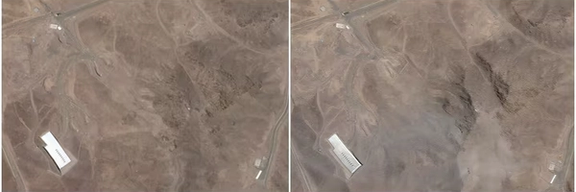
Washington is not capable of launching another military conflict against Iran and is constrained by the risks of soaring energy prices, a senior cleric in the Office of Supreme Leader Ali Khamenei said on Friday.
“Today, there is talk about the possible resumption of a military war, but it seems the enemy does not have the capability to attack again and fears Iran’s power. The Americans also fear the prospect of $150 oil and cannot endure such a situation,” said Ali Saidi.
“While evidence shows no immediate threat, the armed forces must remain on alert and strengthen their communications.”
A day before, Ali Larijani, secretary of Iran’s Supreme National Security Council, suggested dialogue with the United States could be possible, provided it is directed toward a genuine resolution.
“If the United States realizes it cannot defeat the Islamic Republic through war and then seeks negotiations, we will respond positively. But if they negotiate to prepare for the next war, it will be of no benefit to us,” he told Lebanon’s Al-Mayadeen.
France, the United Kingdom, and Germany have separately warned Iran they will reinstate UN sanctions unless Tehran reopens nuclear talks and produces tangible results by the end of August.
Earlier negotiations under the Trump administration collapsed when Israel launched military strikes on June 13, one day after a 60-day ultimatum expired. On the ninth day of the conflict, the United States bombed three Iranian nuclear facilities, which US President Donald Trump said had “obliterated” the program.
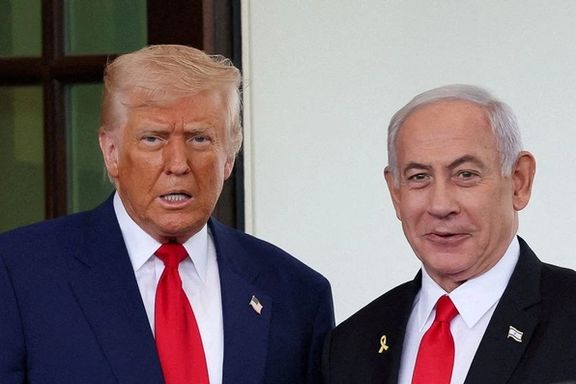
Washington has outsourced its Iran policy to Israel following the 12-day war, former Obama-era negotiator Alan Eyre told Iran International, warning that the Trump administration now sees Iran's nuclear issue as resolved despite the remaining risks.
On June 22, the United States joined Israel’s campaign against Iran and carried out airstrikes on its key nuclear facilities at Fordow, Natanz, and Isfahan.
"President Trump said the [Iranian] nuclear program is obliterated. They seem to have put it in the ‘mission accomplished’ category,” Eyre told Iran International's podcast, Eye for Iran.
Under Obama, Under Secretary of State Wendy Sherman worked closely with world powers to keep the 2015 nuclear deal alive, balancing many interests through complex diplomacy — a sharp contrast to today’s one-track coordination with Israel, Eyre said.
"There’s pretty much one person in the foreign affairs who he is coordinating with, and that’s Prime Minister Netanyahu," Eyre said, "The gentleman in charge, Mr. Witkoff, has a lot of other stuff on his plate to include Gaza and Ukraine. We’re really not paying any attention to the Iran portfolio. We have sort of outsourced it to Israel.”
Signals of a renewed fight
Tehran’s decision to revive its Supreme Defense Council — a wartime command body not convened since the Iran–Iraq War — is widely seen as a signal it expects the ceasefire with Israel to be temporary.
The move suggests Iranian leaders are bracing for renewed conflict and working to reestablish what Eyre described as “some type of strategic deterrence,” from rebuilding air defenses to restoring missile and nuclear capabilities.
Tehran at a crossroads
Weakened by war and diplomatic deadlock, Iran’s clerical elite faces a stark choice: defy pressure to halt its nuclear activity and risk further Israeli and US attack or concede and risk a leadership fracture.
A fragile ceasefire ended the 12-day war in June. Both sides claimed victory, but the war exposed vulnerabilities and punctured Iran’s image of deterrence.
Three Iranian insiders told Reuters the political establishment now views nuclear negotiations with Washington as the only way to avoid further escalation and existential peril. The Israeli strikes began just a day before a planned sixth round of talks with the US.
Supreme Leader Ali Khamenei and Iran’s political leadership have agreed in principle to resume nuclear talks with Washington, seeing diplomacy as essential to preventing further US–Israeli strikes.
E3 Snapback Threat Adds Pressure
Britain, France, and Germany have warned they are prepared to trigger the UN’s “snapback” sanctions mechanism if Iran does not return to talks by the end of August.
Eyre said that even after the attacks, Iran retains the industrial capacity, enriched uranium, and technical knowledge to produce a nuclear weapon if it chooses.
“The fork in the road now is — does it try to reconstitute what it had before, or does it try something else… like moving toward a nuclear weapon?” he said.
You can watch the full episode of Eye for Iran on YouTube or listen on any major podcast platform like Spotify, Apple, Amazon, or Castbox.
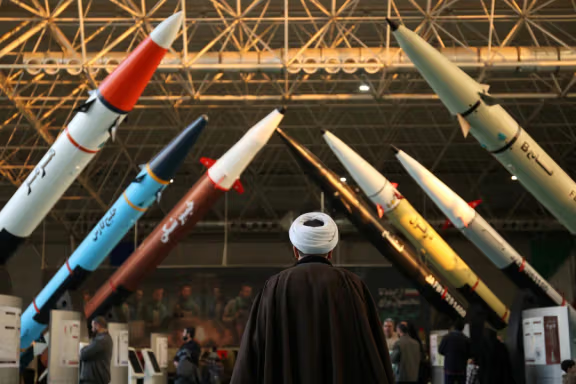
Israel and the US could launch a new war if Iran attempts to resume uranium enrichment, a former Iranian official warned Friday, less than two months after a US-brokered truce ended a 12-day war between Iran and Israel.
“Enrichment without an agreement means war—and even with an agreement, it is currently impractical,” Qassem Mohebali, former director general for the Middle East and North Africa at Iran's Ministry of Foreign Affairs, told Rouydad 24 website.
"The only solution is to temporarily suspend this right until a deal is reached.”
Last month, Iran's foreign minister insisted Tehran would not give up enrichment and the United States has no way to end it militarily, after US President Donald Trump vowed to wipe out Iran's nuclear sites again if it revived its activities.
"All should know that we Iranians have NOT BOUGHT our PEACEFUL nuclear program; we have BUILT IT WITH BLOOD, SWEAT, AND TEARS," Araghchi posted on X in late July.
This statement followed sharp criticism from US President Donald Trump, who called such a position “stupid” and vowed to prevent that from happening.
"They still talk about enrichment. I mean, who would do that? You just come out of something that's so bad, and they talk about, we want to continue enrichment. Who would say that? How stupid can you be to say that?" Trump said.
Is enrichment Iran's right?
While Iran insists that enrichment is its right under the Non-Proliferation Treaty (NPT), Mohebali says the right to enrichment and its actual implementation are different.
"The NPT doesn’t explicitly grant a ‘right to enrichment’, it only permits peaceful nuclear technology use, which doesn’t necessarily include enrichment."
“Iran could be granted this right but choose not to exercise it until an agreement is reached. At present, enrichment seems neither feasible nor open for discussion,” Mohebali added.
On June 22, Trump ordered airstrikes on Iran’s nuclear sites at Fordow, Esfahan, and Natanz, capping off a surprise Israeli military campaign that killed hundreds of people, including military personnel, nuclear scientists, and civilians.
Mohebali also warned that Iran's failure to reach a deal with world powers over its disputed nuclear program may lead to the return of UN sanctions which could itself escalate tensions.
“The return of UN Security Council sanctions—particularly Resolution 1929—would allow the United States, Israel, and Europe to impose official sanctions and carry out actions such as inspecting planes, ships, trains, or individuals. Such actions could themselves lead to war,” he said.
Iran’s Ministry of Intelligence issued secret guidance warning this week to ministries and major companies to prepare for the likely return of punishing United Nations sanctions.
France, Germany, and the United Kingdom have warned that they are prepared to trigger the so-called “snapback” mechanism by the end of August if Tehran fails to reach a diplomatic solution.
The snapback mechanism, part of UN Security Council Resolution 2231, which endorsed the 2015 Joint Comprehensive Plan of Action (JCPOA), allows any party to the accord to file a complaint accusing Iran of non-compliance.
If no resolution is reached within 30 days, all previous UN sanctions would automatically “snap back,” including arms embargoes, cargo inspections, and missile restrictions.